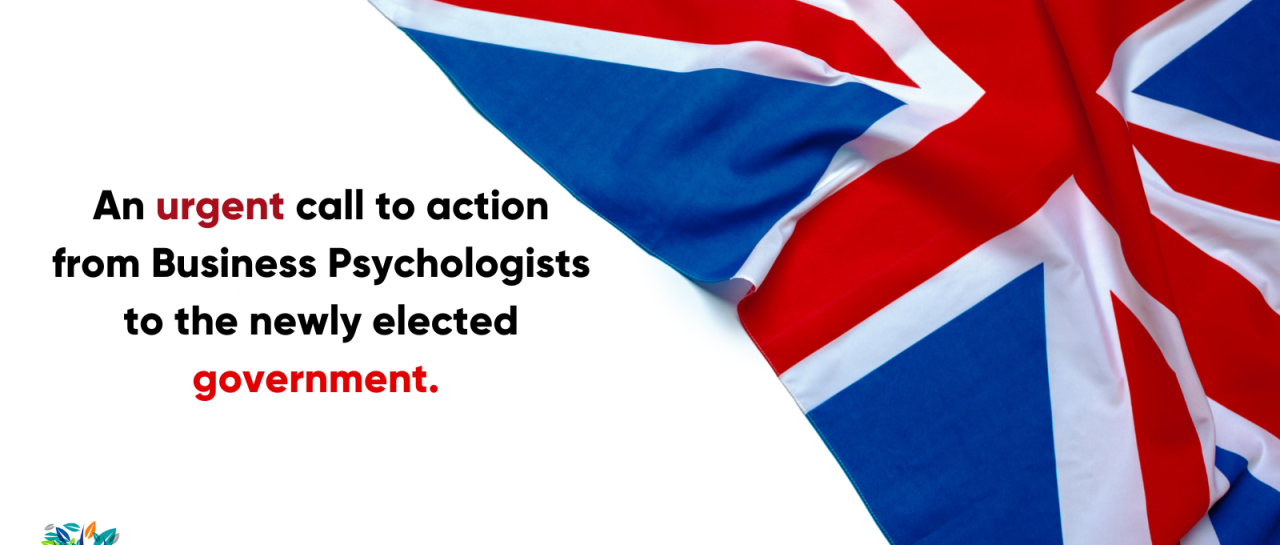Authored by Certified Business Psychologist Laura Howard. Certified Business Psychologist, Laura Howard, reflects on the webinar she recently delivered to ABP members. Below she outlines the main findings of her published research uncovering systematic barriers women face when being authentic as leaders. Importantly, she gives…

Authored by Claire Lish, ABP Company Secretary/Governance Lead
The festive season brings a complex mix of emotions and experiences in the workplace, for many it is a last push to finish projects, a round of Christmas parties and maybe the odd secret Santa, coupled with perhaps a bit of surreptitious online shopping to sort out some last-minute gifts for the family. However, it isn’t all celebrations and fun anecdotes about “Elf on the Shelf” for everyone, and while some people absolutely love the festivities, for others this can be a difficult time for a variety of reasons. For Business Psychologists, understanding these dynamics is crucial. Research from YouGov, Mind, and studies on the “Santa Claus effect” and “Christmas Depression” provide valuable insights for supporting workers during this period.
Diverse Impacts of the Festive Season: A few facts from the research
- A YouGov Survey of 2,193 GB adults in 2019 revealed that 38% experience a negative impact on their mental health during the festive season, with 43% reporting increased stress and 23% feeling loneliness.
- Mind Research has emphasised the heightened mental health risks during this period, showing increased rates of self-harm and suicidal thoughts, especially among those with pre-existing mental health issues.
- In 2017 Brendan Kelly reported on the Santa Claus Effect. This study across 21 European countries, including the UK, found that jollity is linked with health, income satisfaction, and younger age and highlighted the diverse experiences of wellbeing during the festive season.
- In 1982, Hillard and Buckman addressed the concept of “Christmas Depression,” in a study that reflected the societal recognition of the mental health challenges associated with this time.
How do we make sure everyone is OK at Christmas?
A first step is recognising individual differences. While some of us are channelling our inner Will Ferrel, some might be feeling a little more Scrooge, and that’s OK, and this is really important. It must be OK to opt out of forced festive fun. Understanding the spectrum of experiences during the festive season is key. While some may experience a sense of jollity and excitement, others might feel overwhelmed due to personal, financial, or family-related stressors. Additionally, the festive period can amplify feelings of loneliness or isolation, particularly for those far from family or coping with personal losses. With that in mind, it is completely OK for someone to “nope out” of the secret Santa, decline Christmas drinks, or refuse to decorate their desk.
Consider that while some people love the buzz, others may need a safe and quiet space to get away from all the glitter and that’s OK too. For those who have been bereaved, or who are alone, we need to remember that clocking off on Friday may not be as exciting as it is for others, it might be the start of a very lonely long weekend.
A firm also needs to ensure that it has inclusive practices, so at your organisation, make sure that you advocate for workplace practices that respect personal and cultural preferences during the festive season, including sensitivity to those who may not wish to participate in festive activities. All year around, encourage the organisation to host inclusive events that celebrate a variety of cultural festivities. This approach can help in making all employees feel valued and included.
Make sure that your people have access to mental health support. If you haven’t already, then get it on your new year resolutions to make sure your firm provides accessible mental health resources, such as counselling services and Employee Assistance Programs, and implement wellbeing pulse checks or check ins, especially during the festive season. Encourage your HR and management teams to proactively reach out to employees, offering information on available mental health resources and reassuring them that seeking support is both confidential and encouraged.
Make sure that your managers and leaders are equipped to recognise and respond sensitively to the signs of stress and mental health issues. This training should include guidance on how to approach sensitive conversations and offer support. Organise awareness campaigns highlighting the importance of mental health, particularly in the context of the festive season. These campaigns can include workshops, seminars, or distribution of educational materials.
The festive season presents unique challenges and opportunities in the workplace. It is a great opportunity to celebrate the success of the year, take some time out and maybe just be a bit silly. But in the same way that we permit people to be a bit silly at the festive season, we need to bring our human, and be considerate of those have a different experience of the season. As Business Psychologists, we play a vital role in guiding organisations to support their employees effectively during this time. We can help organisations develop evidence-based, empathetic strategies to enhance employee wellbeing, in line with the ABP’s commitment to improving business performance and the quality of working lives.
So, my message to you this Christmas is to squeeze the juice out of the season if that’s what you love, but always keep an eye out for the co-worker who might be finding it tough.
(Written by a self-confessed Christmas nut, who realises she can be a bit much sometimes…..)
These are the references:
Hillard, J.R. and Buckman, J., 1982. Christmas Depression. JAMA: Journal of the American Medical Association, 248(23), pp.3175-3176.
Kelly, B.D., 2017. Exploring and explaining the “Santa Claus effect”: cross-sectional study of jollity in 21 European countries. Journal of Mental Health, 26(6), pp.538-542.
Mind, 2015. Christmas and Mental Health. [online] Mind. Available at: https://www.mind.org.uk/news-campaigns/news/mind-finds-one-in-ten-feels-unable-to-cope-at-christmas/
YouGov, 2019. Survey Results on Christmas Period and Mental Health. [online] Available at: https://d3nkl3psvxxpe9.cloudfront.net/documents/Survey_results_-_Christmas_mental_health.pdf



